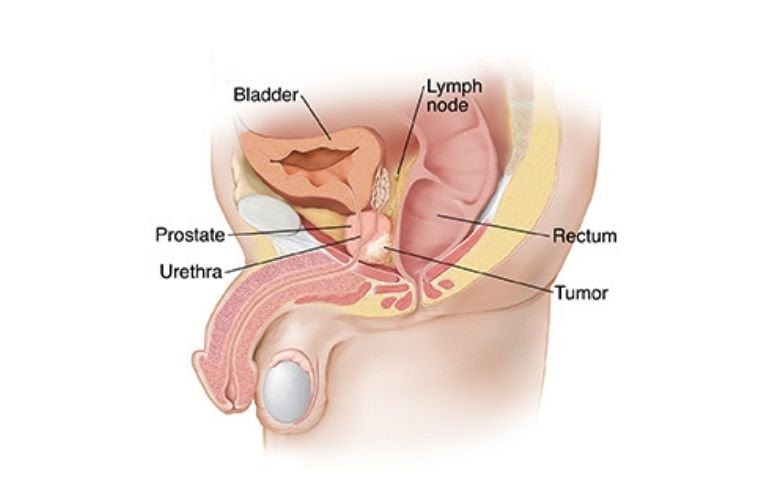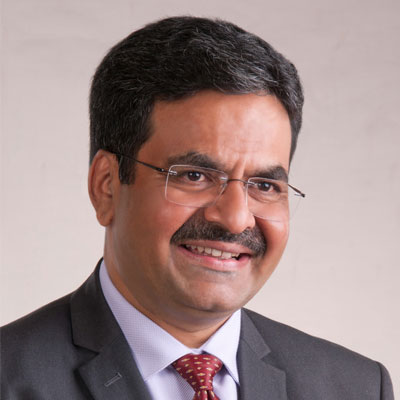Imagine sitting at your favourite local café, the aroma of freshly brewed coffee filling the air as friends gather for their weekly catch-up. The conversation dances from the latest movies to upcoming travel plans, until an unexpected topic emerges – prostate cancer.
One friend leans back in his chair, sipping the latte casually mentions, "You know, only older guys need to worry about prostate stuff." Nods and chuckles ripple through the group, and just like that, a classic case of misconception takes its seat at the table.
Prostate cancer myths are like those quiet rumours that manage to sneak into everyday chatter, subtly influencing what we think we know. But today, we're putting on our myth-busting hats and sorting fact from fiction.
As a urologist working at Aashray Urology Institute, I feel proud to clear all your myths surrounding this topic. No need for dramatic drumrolls, just an honest exploration of what's true and what's, well, just café talk.
Get ready to kick back with your coffee – or tea, we don't discriminate – as we debunk, demystify, and decode the world of prostate cancer myths. It's a journey through common misconceptions, guided by expert insights and sprinkled with a healthy dose of clarity. So, let's dive into the conversation, one cup of truth at a time.
Common Myths About Prostate Cancer
In the world of prostate cancer, myths often cloud the path to understanding. Let's unravel these misconceptions and shed light on the truth behind prostate health. From age-related beliefs to misconceptions about symptoms and treatment, we'll debunk these myths, empowering you with accurate knowledge to navigate your prostate health journey.
Myth 1: Age is the Sole Risk Factor
Contrary to popular belief, prostate cancer isn't solely determined by age. While the risk does increase as you get older, there are other significant factors at play. Genetics play a crucial role – if you have close family members who've had prostate cancer, your risk could be higher, even at a younger age.
Ethnicity matters too; certain groups, like African American men, face elevated risks. Unhealthy lifestyle habits such as a poor diet, lack of exercise, and smoking can also contribute, regardless of age. Even environmental factors like occupational exposures can influence the risk. So, it's not just about the candles on your cake – prostate cancer risk is a mix of various factors that we need to understand better to protect our health.
I remember, our hospital had a patient from Africa, who underwent prostate surgery at our hospital after suffering for six years. If you wish to read more about Martin, then you can read this patient story or view his video below.
Myth 2: Prostate Cancer Always Means Trouble
Is prostate cancer truly a one-way ticket to dire straits? Let's debunk this notion and shed light on the diverse range of outcomes and treatment avenues. Contrary to the misconception that a prostate cancer diagnosis spells imminent doom, the reality is far more nuanced.
With advancements in medical science, early detection, and tailored treatment plans, many men navigate through prostate cancer with successful outcomes and improved quality of life. From active surveillance to surgical interventions and innovative therapies, the landscape of possibilities is wider than ever.
My colleague at Aashray Urology Institute, Dr. Chirag Dalal shared his views in detail about this. He listed the latest advancements in this field to treat the prostate. For those of you who are interested in knowing more about it, you can read further.

Myth 3: Symptoms Always Speak Louder
Is prostate cancer always accompanied by unmistakable signs? Let's delve into the hushed reality of this misconception and uncover why symptoms often remain hidden in the shadows. Contrary to the belief that prostate cancer announces its presence with loud fanfare, it often prefers to keep a low profile.
Many men with prostate cancer experience no symptoms at all, especially in the early stages. When symptoms do arise, they can be vague and easily mistaken for other conditions. Frequent urination, difficulty starting or stopping urination, blood in the urine or semen, and pain or discomfort in the pelvic area are some possible indicators. However, these signals can be subtle and may not necessarily signify prostate cancer.
This stealthy behaviour makes regular check-ups all the more essential. While symptoms may eventually surface, they can be subtle and easily mistaken for other conditions. This underscores the significance of proactive health monitoring and routine screenings, which serve as crucial allies in unmasking potential threats early.
Myth 4: Treatment Equals Dysfunction
It is a foregone conclusion that prostate cancer treatment leads to unwelcome side effects. Let's debunk this myth and set the record straight about the potential outcomes of treatment. Contrary to the belief that battling prostate cancer is a trade-off between health and well-being, medical advancements have ushered in a new era of preserving the quality of life.
While it's true that some treatment approaches may have associated side effects, it's essential to recognize that not all treatments lead to dysfunction. Surgical techniques, radiation therapies, and medications have evolved to minimize the impact on daily life. With personalized treatment plans and a holistic approach to patient care, medical professionals are dedicated to ensuring that the journey to recovery doesn't equate to a compromise on well-being.
At Aashray Urology Institute, depending on the situation of the patient we suggest surgical or non-surgical options to treat prostate.
Early Detection and Screening: Facts vs. Fiction
Navigating the realm of prostate cancer screening can be like deciphering a complex code. The PSA (Prostate-Specific Antigen) test, often hailed as a hero in early detection, deserves a closer look. It's not a definitive verdict but rather a vital clue, demanding careful interpretation.
PSA levels can fluctuate due to various factors, including age and benign conditions. Its limitations mean shared decision-making between you and your healthcare provider is paramount. Don't be swayed by misconceptions – a high PSA reading doesn't spell doom, nor does a low one guarantee safety.
Balancing the benefits and potential risks of PSA testing requires understanding. Embrace informed discussions about when and how often to screen, factoring in your risk profile and overall health. Early detection isn't about crystal balls but about informed choices.
The PSA Test: Unveiling the Truth
If you've heard about the prostate, you might know that people often think high PSA levels mean big problems in the prostate. But guess what? That's not entirely true. The PSA test is like a detective trying to catch early signs of trouble. It measures a special protein made by the prostate.
But here's the catch: the PSA test isn't a crystal ball. It can't tell for sure if you have prostate cancer. It's more like a puzzle piece that needs careful fitting into the bigger picture. High PSA levels might mean something's up, but they can also happen for not-so-serious reasons.
So, don't panic if your PSA reading is high. And don't assume everything's perfect if it's low. It's all about knowing what the PSA is trying to say and making smart choices with your doctor's help. The PSA test isn't the whole story – it's just one part of your health journey. By understanding it better, we're better armed in the fight against prostate issues.
Navigating Screening Misconceptions
In the realm of prostate cancer screening, knowledge truly is power. But before we plunge into the depths of understanding, let's address a critical question: Is ignorance bliss?
The answer is a resounding no. Ignorance might offer temporary comfort, but when it comes to your health, informed decisions pave the way to true empowerment. It's time to set the record straight, sifting fact from fiction in the world of screening methods.
Dispelling misconceptions is our compass, guiding us toward accurate knowledge. It's not just about saying "yes" or "no" to screenings – it's about understanding their nuances, their benefits, and their limitations.
Two primary screening tests take the spotlight in the realm of prostate health: the PSA (Prostate-Specific Antigen) test and the digital rectal exam (DRE). The PSA test measures prostate-specific antigen levels in your blood, while the DRE involves a physical examination of the prostate through the rectum.
Screening methods, like pieces of a puzzle, provide essential insights. Embrace the truth that awareness equips you to chart a proactive path.
When and How is Prostate Cancer Screening Needed
Timing is everything. Regular screening discussions usually commence around age 50 for most men. However, if you have a family history or other risk factors, these conversations might start as early as age 40 or 45. There's no one-size-fits-all approach – it's about tailoring screenings to your unique circumstances.
Tailored Treatment Approaches for Different Cases
Prostate cancer is a multifaceted adversary, and the notion that one size fits all couldn't be further from the truth. The concept of personalized treatment takes center stage, as we steer clear of the misconception that all prostate cancer cases share the same script.
Think of prostate cancer as a spectrum, with varying levels of risk and complexity. Low-risk cases might call for active surveillance, a vigilant watch without immediate intervention. On the other end, high-risk scenarios could involve surgical procedures, radiation, or hormone therapy, each tailored to maximize efficacy while preserving your quality of life.
Prostate Cancer Isn't One-Size-Fits-All
Each case is a distinct entity, shattering the notion of one-size-fits-all solutions. Guided by risk stratification, your treatment path becomes finely tuned, addressing your individual needs and circumstances.
Depending on your case, we can guide you about the treatment options that suit you the best.

Decoding Treatment Options
Imagine a diverse menu of treatments – surgery, radiation, hormone therapy – each holding potential pathways to healing. Your choice isn't a shot in the dark; it's an informed decision, harmonizing your unique diagnosis with the right approach. This symphony of options empowers you to step forward confidently, your health the guiding note.
So if you are aware only of ‘surgery’ as an option for treating prostate, then it is a myth.
Balancing Act: Active Surveillance Demystified
Peel back the curtain on active surveillance – a vigilant, yet restrained approach for low-risk prostate cancer. It's not inaction; it's a mindful watch, intervening only if needed. This delicate balance safeguards your well-being by avoiding unnecessary interventions and emphasizing quality of life.
In the realm of prostate cancer, customization is key. Your journey is a masterpiece of tailored care, amplifying outcomes and championing your uniqueness.
Lifestyle and Prevention: Separating Fact from Fiction
In the quest for prostate health, separating reality from misconception is paramount. Lifestyle choices wield a profound influence, and understanding their true impact is essential. Let's embark on a journey of exploration, where I untangle the threads of fact and fiction.
Plate, Sweat, and Genetic Roulette
Your plate holds more power than you might think. While it's not a guaranteed shield against prostate issues, opting for nutrient-rich foods like fruits, vegetables, and whole grains can potentially tip the odds in your favour.
Sweating it out isn't solely about sculpting muscles; it's about fortifying your defences. Regular physical activity has been linked to a potential reduction in prostate cancer risk, making that workout routine more meaningful than ever.
Genetics might load the gun, but lifestyle choices determine whether it gets fired. Family history isn't the sole author of your health story. By embracing a balanced diet, an active lifestyle, and the knowledge to navigate this genetic roulette, you're taking control of your narrative.
In the dance between plate, sweat, and genetic factors, you hold the lead. Your choices are the rhythm guiding you toward a harmonious symphony of prostate health.
Sorting fact from fiction, I, Dr. Ashit Shah, a urologist at Aashray Urology Institute, dispelled unsupported notions and offered science-backed insights to empower your choices. As an experienced doctor, I’ve tried to clear all myths that surround the prostate.
If you have any doubts you can approach me personally or drop in at Aashray Urology Institute. Share this article and be a beacon of accurate information. Together, let's conquer prostate cancer!



